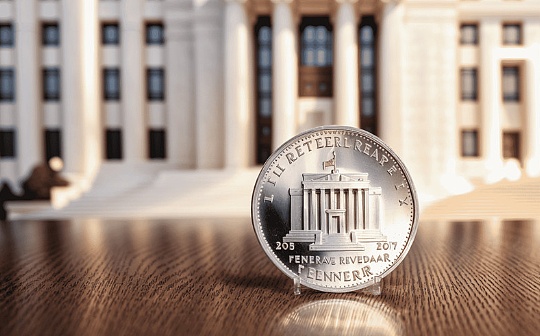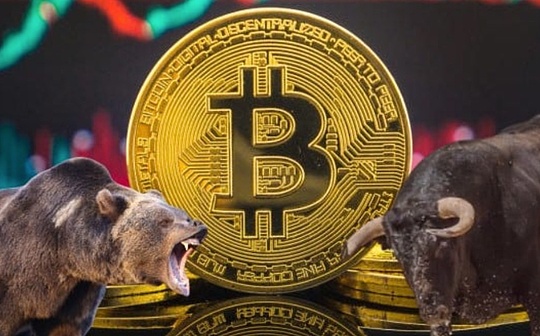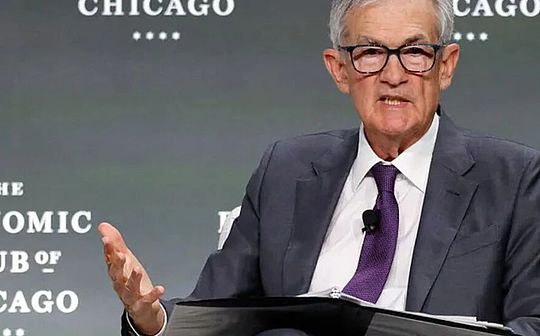
Author: Leo Schwartz, reporter of Fortune Magazine; compiled by Luffy, Foresight News
In October 2022, just weeks before the FTX crashed, Chris Dixon sat down and wrote a book about cryptocurrency.The venture capitalist and forever optimist hopes to share with everyone a new vision of the technology he loves.
In the early days of the Internet before companies like Google and Facebook swallowed up every fortune, Dixon founded a startup, and he believed that the decentralized commitment of blockchain could revive early components of the open Internet.

By the end of 2022, this vision is overshadowed by an industry dominated by casino mentality and defined by criminals like Sam Bankman-Fried.FTX’s failure felt like a turning point, and for many bystanders, cryptocurrencies have become synonymous with fraud.
“I was like, ‘It’s so frustrating,’ and then I feel sad for myself,” Dixon told me during breakfast last week.”Then I thought, ‘I could see this as a frustrating moment, or I could see it as an opportunity, too.'”
Dixon has worked in the tech space for decades, from entrepreneurs who created early AI companies to angel investors to partners at a16z founded by venture capital giant Andreessen Horowitz.
He has never experienced such a huge disagreement between the public’s perception of his project and his own understanding.”I might try to close the gap,” he thought to himself.
The result is Read Write Own, a manifesto on the advantages of cryptocurrencies that could be a combination of biblical and self-help books for those who still think blockchain technology will open the door to the next generation of the internet..The book, to be published on January 30, provides a clear defense of the industry that is often ridiculed by the outside world.
Dixon is only 52 years old, but he has become a veteran politician in the cryptocurrency field.,
He believes that blockchain is not just a toy for “digital ups” gambling and people who call themselves degens, it can be a non-political software that can save the Internet from corporate overlords.
As the head of a16z crypto, Dixon is more than just a paper theorist.He has real stakes in the game, and his fund raises $7.6 billion from investors.His book is not only a paper about the future of the Internet, but also a clarion call for the survival of the industry.
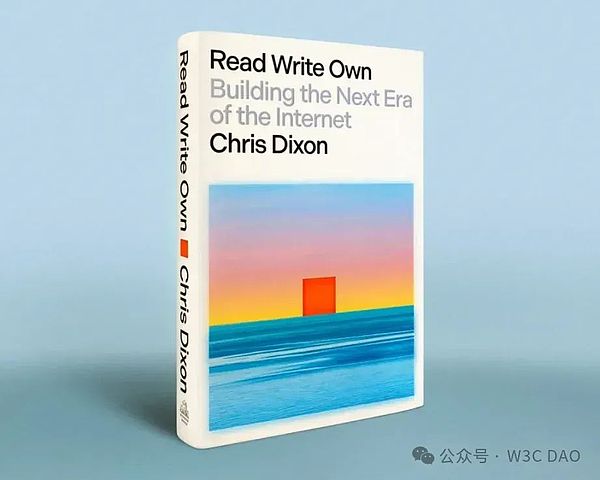
Cathedrals and markets
Dixon looks at the Internet from a network perspective, not only how people connect, but how different technologies interact to build the network infrastructure we know.
Much of the content of the Internet we think today is owned and controlled by big companies.From WhatsApp to Gmail, to cloud computing services that support them, everything is controlled by a handful of companies that not only determine how the platform operates, but also take away almost all profits, destroying everything from newspapers to travel agencies.Many industries.
This is not always the case.Early developers of the Internet envisioned a more open network that was managed democratically, giving decisions to the people (or at least those who care enough and participate).
This vision still exists in components of the modern Internet, such as SMTP that standardizes email communication and HTTP that helps computers communicate with each other.The other is DNS, which allows us to access web pages with human-readable names, such as fortune.com, rather than a series of numbers.
These protocols are usually free or very cheap to use and are either open source or managed by nonprofits responsible for maintaining rather than seeking profits.Their presence is the main reason why emails are not controlled by Google, URLs are not controlled by Amazon, and web surfing is not controlled by Microsoft.
“I’ve always hated Microsoft,” Dixon told me.This seems like a weird statement for one of the most powerful people in tech, especially one who works for a venture capital firm that has invested billions in companies like Facebook and TwitterThe dollar, helped build the internet as we know it today.
Although Dixon is rich and well-known, he gives a laid-back feeling.He suggested we meet at a small restaurant, and his favorite restaurant in Tribeca was closed, so I found one near Fortune’s office.
Eating a plate of eggs, sausages and potatoes, he looks more like a university professor than a venture capital giant, who likes to answer questions in a long sentence, and when he is excited about an idea, heThe tone will rise.His academic image was broken when we walked outside and saw his black SUV and the driver waiting.
Prolific blogger
Dixon said his career stems from a love for open source software, such as the Unix operating system.This is what attracted him to the blockchain.
He is a prolific blogger who began writing about the centralization of the Internet around 2009.Specifically, he was stunned by an analogy created by programmer Eric Raymond, which is “Cathedral and the Market”.In the cathedral model, software is strictly limited to the internal circles of developers, who are often employed by companies, and they can build complex and beautiful structures that are not open to external contributors.In contrast, the market is open source, busy and without clear order, but is energetic because of collaboration among contributors.
At the time, platforms such as Twitter and Facebook tried to build themselves into fairs.They invite developers to build applications on their platform, and Twitter promises support for RSS, another open source protocol that allows users to follow different websites and blogs.Still, Dixon understands that they function more like a cathedral.“The problem is that Twitter isn’t really open,” he wrote in his October 2009 blog, “At some point, Twitter will need to make a lot of money to justify its valuation.”
Meanwhile, in October 2008, Satoshi Nakamoto published a white paper introducing Bitcoin to the world.Dixon did not convert immediately.The use case for Bitcoin conception is in the financial field, where Satoshi Nakamoto envisions the original cryptocurrency as a new form of currency, while Dixon is more concerned with broader infrastructure protocols.Still, he saw the value of blockchain: a new type of network with decentralized ownership, managed by participants and run by software.
Dixon has had limited influence in his years as an angel investor.In 2012, he joined a16z and the Venture Capital Major League.“The only reason I want to join a venture capital firm is whether I can get up and really try to figure out the new computer movement,” he said.He told me.
It is still unknown whether blockchain will become the future.Dixon’s first bet was Coinbase, the cryptocurrency exchange that was born in 2013, but he also invested in VR company Oculus (later acquired by Meta) and drone startup Airware (which went bankrupt in 2018).
He expects how Bitcoin will evolve will allow software developers to add new features and expand blockchain use cases.The Bitcoin team has never done this.Instead, a new blockchain called Ethereum was launched in 2015, promising to allow developers to create any form of decentralized applications.Three years later, a16z launched its first cryptocurrency-specific fund, led by Dixon.
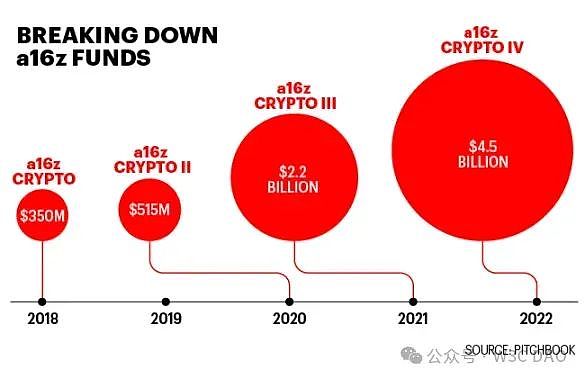
“High sugar”
Dixon’s claim on blockchain is simple, and the title of his new book elegantly summarizes it.The first era of the Internet, driven by innovations such as early protocols and web browsers, enabled us to consume (read) information.The second era was driven by businesses like Facebook and Apple, allowing us to create (write) our own content.The third era is driven by blockchain and will allow us to control the entire process from decision-making to harvesting.
For example, a decentralized social media platform will allow users to vote on content audits and keep the code open source to form a vibrant ecosystem of third-party applications.Advertising revenue will not enter the platform, users can actually monetize their content, and the token system can distribute revenue and play a dual role as a governance mechanism.
This is a beautiful world worth imagining, but 15 years after Bitcoin was born, such a world has not yet become a reality.This is not because of a lack of attempts.There are many cryptocurrency projects targeting consumers and billions of dollars have been invested to make them popular.However, cryptocurrencies still haven’t ushered in the “ChatGPT” moment.
A common saying in the crypto space is that we are in the early stages and it took people decades to enter the Internet age.The first paper on artificial neural networks was published in 1943, 75 years before the launch of ChatGPT.Dixon admits that his grasp of trends is often too early.He founded his first AI company in 2009, but eventually sold it to eBay due to a technical bottleneck.
Dixon firmly believes in “feature peering”, that is, crypto applications will only become popular if they are as good as non-blockchain competitors.This day seems to be far away due to slow blockchain processing time, high fees and long-standing security issues.”How many killer apps can you develop when a transaction costs $10,” he said.Still, Dixon said that in an “optimistic situation”, blockchain computing power will be sufficient in the next 12 months.
Meanwhile, the only popular activity for cryptocurrencies is speculation, from recent enthusiasm for Bitcoin ETFs to crypto asset casinos like FTX.
“People can’t help but talk about prices,” Mary-Catherine Lader, chief operating officer of Uniswap Labs, a16z portfolio company, told me. “Money has a natural magic.”
Dixon describes the cryptocurrency speculation craze as “high sugar.”Not only does this bring a bad image to the field, excluding users, but it also makes his portfolio company try to build unattractive infrastructure.“You’ll hear people walking down the street and saying, ‘Hey, get on the bus Bonk,’” he told me, Bonk refers to the newly hyped memecoin on the Solana blockchain.”People are usually interested in this.”
In response, Dixon plays an unusual venture capitalist role, spending a lot of time in Washington lobbying for new laws regulating cryptocurrencies.Like many in the industry, he believes the SEC is killing innovation by tracing utility-providing tokens like Solana and local companies like Coinbase while allowing junk coins and offshore exchanges to flourish.
a16z crypto hired former regulator staff, Dixon himself is a donor, and public data from OpenSecrets shows that he has donated to more than a dozen crypto-friendly members of Congress.“Meeting with lawmakers is a tough and tedious job,” Ron Conway, a VC legend and an old friend of Dixon, told me.”Most venture capital firms avoid this activity.”
a16z co-founder Ben Horowitz told me that after seeing big tech companies like Meta show their influence in Washington, the company decided to lobby.”These powerful companies with monopoly products are very active in Washington,” he told me.“If no one represents a small tech company, we will be shackled by regulation and innovation will slow down significantly.”
The elephant in the room
Dixon has not overlooked the irony of a16z ascending to the throne of decentralized networks.Through investments in companies like Airbnb, Facebook and Twitter, the venture capital firm helped lead the corporate-owned Internet era, and Dixon is now begging us to get out of it.
“I think it’s going to be more dispersed, but I’m wrong,” Dixon said. “We don’t know or want to create a system that will cause venture capital to die, because there will be four companies controlling the internet.”
According to Horowitz’s estimates, a16z has basically stopped betting on Web2, and even its crypto fund, besides the photo sharing app BeReal (he did not mention that the company also invested $400 million in helping ElonMusk acquires Twitter in 2022. ).That’s the benefit of being a venture capitalist,” Horowitz, “you can make a lot of investments.”
While venture capital can diversify bets, the participation of large venture capital firms in the case of cryptocurrencies will still raise concerns that this could undermine the mission of blockchain decentralization.Like other cryptocurrency venture capital firms, a16z’s investments often receive tokens instead of traditional equity, meaning it can have a huge impact on project governance.
Such concerns have sparked controversy, such as a16z supporting a unpopular proposal from Uniswap to use another portfolio company, LayerZero, as the underlying infrastructure, rather than a competitor called Wormhole.Although a16z tried to divert criticism by arguing that it distributed tokens to student clubs and nonprofits, angry purists on Twitter accused the company of being the actual owner of Uniswap, a seemingly open agreement.
Lader, who works at Uniswap Labs, a lab that is technically separate from the Uniswap protocol, said she would not discuss governance issues with Dixon.Nevertheless, she believes that decentralization is not a guarantee of equal distribution of ownership, but an indicator of “fair and open access”.
Another problem that plagues cryptocurrency venture capital is the tendency to sell tokens for short-term gains.In traditional venture capital, companies will hold the investment for many years until they exit through an initial public offering or acquisition.In cryptocurrencies, the token’s vesting period only takes one year.
“If you are a cryptocurrency venture capitalist, your obligation is to cash out as soon as possible,” said Omid Malekan, an adjunct professor at Columbia Business School. “This design is very bad for the long-term viability of most crypto projects.”
Dixon acknowledges that many cryptocurrency ventures operate more as hedge funds, but he says he supports longer lockdowns.He even helped introduce such clauses in the proposed cryptocurrency legislation.”Short-term motivation is a very dangerous thing,” he told me.According to a16z spokesman, their cryptocurrency fund still holds 94% of all tokens it purchased in private equity transactions.
For Dixon, the question more about survival is whether crypto projects require venture capital and the expectations that come with it.He bets that the recipients of a16z funds will not only become the foundation of the next generation of the internet, but will also earn billions of dollars.
When I asked Horowitz, he compared the gambling to DNS.They invest not directly in practicality, but in tokens—somewhat like venture capital firms bought a large number of URLs early in the web.”I don’t actually think there is tension there,” he said.
Scholar Malekan believes that recent trends indicate the opposite, especially as venture capital firms typically invest in foundations, labs, tokens and protocols that underpin crypto projects.But those successful projects, such as Bitcoin and Ethereum, require only a small amount of capital.”In the cryptocurrency space, you can almost say that there is a very strong negative correlation between success and the amount of money you raise,” he told me.”It’s not just as successful as a project — you have to act like a billion dollar company.”
Although Dixon says tokens are a way to drive engagement through healthy speculation, such as home ownership, they can also easily reproduce the harmful, profit-oriented incentives that build our current internet.
Axie Infinity, a16z-backed consumer crypto project, stimulates a twisted alternative economy where workers in the Southern Hemisphere put their savings into the game and use it as a second job.The game’s brief success may be a failed experiment, but it still gives us a glimpse into what a venture-backed, blockchain-dominated future might bring.
Currently, this is a theoretical question, and SBF has hardly appeared in our review, and the cryptocurrency industry is also looking for a foothold.Dixon is notoriously reluctant to go to media interviews, and through Read Write Own, he is coming out of the shadows, ready to take on the role of a leader, and open a path forward for his industry and non-believers.a16z’s baggage may not make him the ideal messenger, but he is at least a compelling messenger.
“If we can make it work, it seems like a very huge opportunity because it’s very unconsensual,” Dixon said. “By the way, that’s how you make money.”


